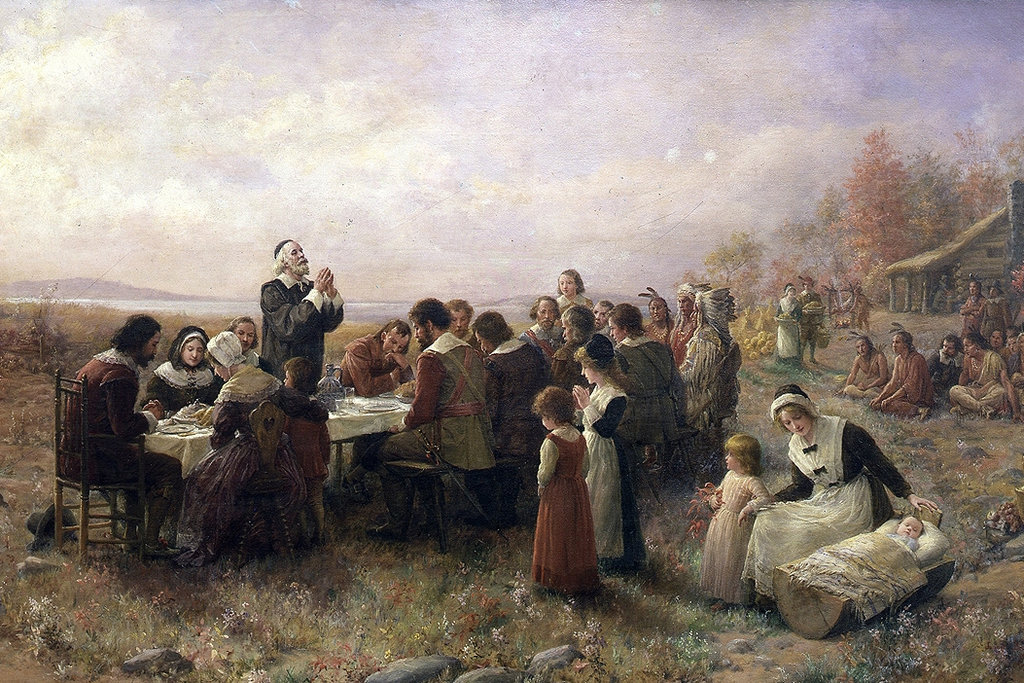
Thanksgiving is right around the corner, but the holiday has an odd place in our culture these days.
It’s a federal holiday to give thanks, but the federal government won’t say who it is we’re supposed to thank. Our society loves our Thanksgiving traditions, but the reasons for those traditions are rarely remembered.
Our forefathers who established the traditions were not so muddled.
By the time of what we remember as “The First Thanksgiving,” the religious exiles we call “Pilgrims” had seen their friends die and barely survived themselves. Only 52 out of 102 survived the first harsh winter for which they found themselves so unprepared. The survivors knew all too well what it meant to say “give us this day our daily bread,” knowing that sometimes that request would not be granted.
Yet, a year later found one of the Pilgrims, Edward Winslow, writing for the benefit of readers in England, “although it be not always so plentiful, as it was at this time with us, yet by the goodness of God, we are so far from want, that we often wish you partakers of our plenty.”
In our day, we are uncommonly blessed – to the point that we’ve come to assume that our blessings are just the natural state of man. Recalling the struggles of our ancestors can help give us a right perspective. What they celebrated as prosperity, most of us would consider destitution.
But they had something that we don’t have, as well: a clear understanding that what they did have came from the hand of God.
Although he arrived too late for what we call “the First Thanksgiving,” William Hilton was on the boat that followed the Mayflower a year later. In a letter home, he recounts the many blessings of life in “New Plymouth” to a cousin back home. He notes the abundant fruit, nuts, flowers, roots, herbs, berries, timber, game, fish, fowl, and “Indian corn.” He cites the colonist’s status as “free-holders” – “the rent-day doth not trouble us,” but he saves the best for last. And, incidentally, this happens to be the blessing that is lacking in many of today’s Thanksgiving celebrations: “Our company are, for most part, very religious, honest people; the word of God sincerely taught us every Sabbath; so that I know not anything a contented mind can here want.”
In Ecclesiastes 2, “the Preacher,” remembers looking for joy and finding it in his work. Then he tells us that when he turned to consider the product of his work, he found that to be “vanity and striving after wind.” He comes to this conclusion: “There is nothing better for a person than that he should eat and drink and find enjoyment in his toil. This also, I saw, is from the hand of God, for apart from Him who can eat or who can have enjoyment?”
Celebrating “Thanksgiving” without actually giving thanks to the giver of “every good and perfect gift” is the very definition of vanity.
So, we wish you a JOYFUL Thanksgiving, full of the knowledge that all you have is a gift from a gracious God who knows your needs, who’s made you a part of a story of which the glorious memories of our ancestors at Plymouth Rock are only a part. May the generations that follow look back to us and find us pointing as clearly to the Source of all joy as we find in our forefathers.’
Happy Thanksgiving!
To view this article in your browser, Click Here
For more information, articles and newsletters, please check out our website at https://americandecency.org/
You can support ADA financially by visiting: https://give.cornerstone.cc/americandecency

Call us:
231-924-4050Email us:
info@americandecency.orgWrite us:
American Decency AssociationCopyright 2024 American Decency